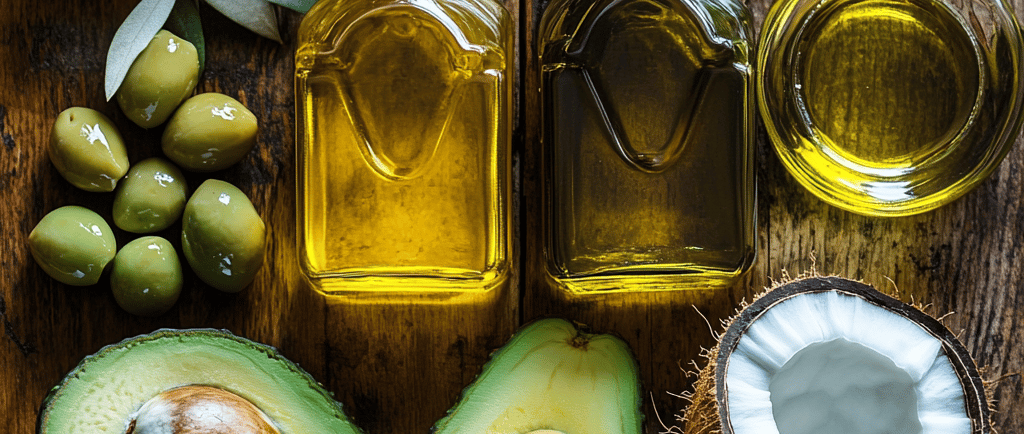Ditching Seed Oils: Healthier Alternatives for Your Diet
Many common seed oils, like canola and soybean oil, are highly processed and linked to inflammation. This post explores why you should avoid them and how to swap them for healthier alternatives like olive, avocado, and coconut oil.
NUTRITION
2/17/20252 min read


In recent years, there's been growing concern about the health implications of consuming seed oils—such as canola, soybean, corn, and sunflower oils—due to their high omega-6 fatty acid content and the industrial processes used in their production. Many health experts suggest that an excessive intake of omega-6 fatty acids, especially when not balanced with omega-3s, may contribute to inflammation and other health issues. Additionally, the high-heat and chemical-intensive extraction methods for seed oils can lead to the formation of harmful compounds.
To promote better health, consider reducing or eliminating seed oils from your diet and replacing them with healthier alternatives like olive oil, avocado oil, and coconut oil. Here's why these options are beneficial:
1. Olive Oil
Extra virgin olive oil is rich in monounsaturated fats and antioxidants, which have been linked to heart health and reduced inflammation. It's ideal for salad dressings, drizzling over dishes, and low to medium-heat cooking. When choosing olive oil, opt for cold-pressed, extra virgin varieties stored in dark glass bottles to ensure quality and freshness.
2. Avocado Oil
Avocado oil boasts a high smoke point, making it suitable for high-heat cooking methods like frying and sautéing. It's high in monounsaturated fats and vitamin E, contributing to heart health and antioxidant support. However, be mindful of sourcing, as the market can be unregulated; choose reputable brands to ensure purity.
3. Coconut Oil
Coconut oil contains medium-chain triglycerides (MCTs), which are metabolized differently than other fats and may offer quick energy sources. It's suitable for baking and medium-heat cooking. While coconut oil has unique properties, it's essential to use it as part of a balanced diet.
Tips for Transitioning Away from Seed Oils:
Read Labels Carefully: Many processed foods contain seed oils. Check ingredient lists to identify and avoid products with canola, soybean, corn, sunflower, and other seed oils.
Cook at Home: Preparing meals at home allows you to control the ingredients and choose healthier cooking oils.
Choose Whole Foods: Focus on unprocessed foods like fruits, vegetables, lean proteins, and whole grains, which are less likely to contain added oils.
Ask Questions When Dining Out: Inquire about the oils used in meal preparation at restaurants and request dishes cooked with healthier alternatives when possible.
By making mindful choices and opting for healthier oils, you can reduce your intake of seed oils and potentially improve your overall health.
ThriveSphere.space
Empower your journey to a balanced life.
Connect
Explore
contact@thrivesphere.space
© 2025. All rights reserved.
